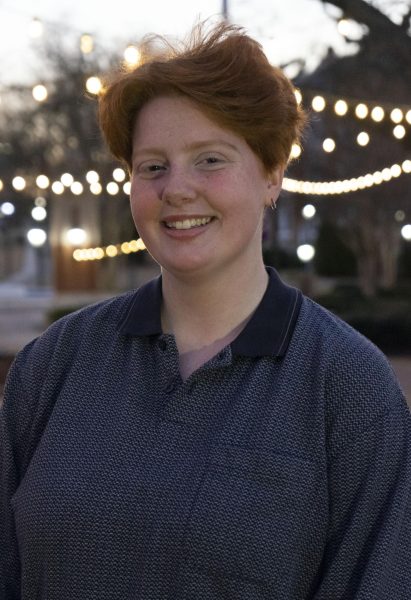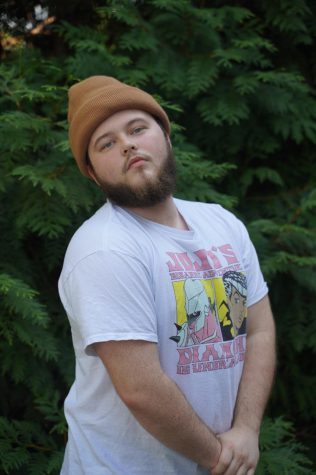UNA introduces new Math Learning Center
February 16, 2023
The University of North Alabama introduced a new Math Study Center for those who need help with their math homework.
Dr. Candice Quinn, the director of the Math Learning Center, collaborated with the Math Fellows to create the MSC.
“The Math Study Center is brand new, because we already have one-on-one tutoring [in the Math Learning Center], and we have the Math Fellows, which are undergrad math students in one of the courses as supplemental instructors,” said Quinn. “[The MSC] came from the idea of merging the two together.”
The MSC resides in room 110 of Stevens Hall. It is open Mondays and Wednesdays from 2:00 to 4:00 p.m. and Tuesdays and Thursdays from 2:00 to 5:00 p.m. In the large, open room, desks are spread out for students to study or do homework. Undergraduate students that are proficient in select 100- and 200-level math classes work as tutors for those who would like assistance with their assignments.
“It’s supposed to be less formal here,” Quinn said. “Say you’re a student who just has to do their homework, and you just want a place to sit down and work, but you only have a question once in a while. You can sit here and raise your hand if you have a question.”
Quinn also advocates for those who like to study or do homework in groups, as the desks are able to be moved, and each wall houses a number of whiteboards that are free for student use.
Staff in the MSC wear name tags indicating which courses they are able to help students with. As it is entirely staffed by undergraduate students who also work for the MLC or the Math Fellows, there may be times when the MSC does not have a tutor for every single beginner math subject.
In contrast to the MLC, the MSC is supposed to give students the freedom to come and go as they wish and receive help without having to stick to appointment times.
“A lot of the time, students come in here because they don’t have confidence,” said Rachel Hill, a tutor at the MSC. “They don’t think that they can actually solve the problem on their own. People will book MLC appointments just to do their homework, as a reassurance before they hit enter.”
Tutoring at the MSC gives students like Hill and Logan Moore the opportunity to expand their own math skills while helping others succeed.
“I have noticed, while helping people, that seeing the click is the most rewarding thing,” said Moore. “I like explaining to them what the problem is asking, and them being like, ‘Oh, I didn’t think of it like that,’ and then doing the problem on their own. It’s my favorite thing.”
Hill also finds that her teaching capabilities have strengthened since beginning to tutor.
“I’ve helped somebody with a math learning disability before, and you really overestimate what people should know and what examples people should know,” Hill said. “Tutoring has really helped me figure out how to say four different examples for one problem to try to guess what people are going to [understand]. Also, I realized I forget a lot of math, so tutoring has helped a lot with keeping up with those skills.”
The advancement of math skills is Quinn’s biggest mission for the MSC. She aims to create a space where students feel comfortable working on their math assignments.
“For me, because I am a STEM educator, I have seen the importance of working together, talking through things and having someone to voice your opinions to,” Quinn said. “It’s one of the best ways to learn math. That’s what we’re hoping we can get for the students.”
Quinn asserts that the only way to find out if the MSC will be helpful for each individual student is for them to try it out.
“Just give it a try,” Quinn said. “Come in, sit down and see if it benefits you. Don’t do your work alone. We’re here to help.”














